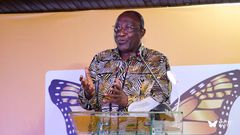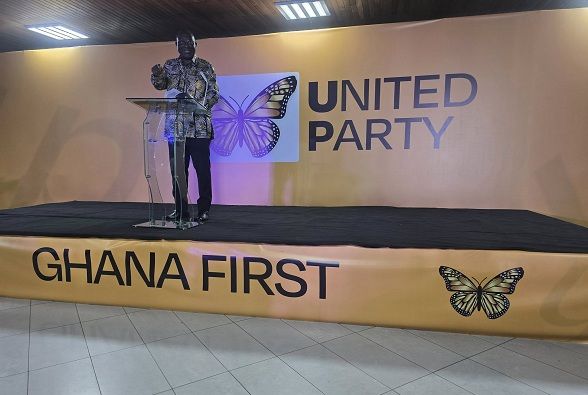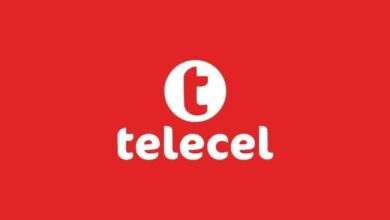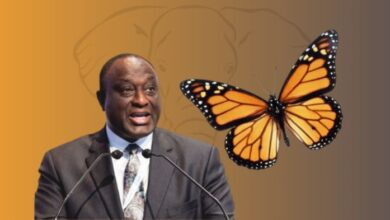Alan’s Movement for Change Officially Rebrands as United Party

Ghana’s political arena has taken a decisive turn as Alan Kyerematen’s Movement for Change transitions into a full-fledged political party under the new name United Party (UP). The rebranding, announced on Tuesday and confirmed by party officials, marks a new chapter in Alan Kyerematen’s political journey, signaling his intent to contest the 2026 general elections with a stronger, more structured, and historically resonant identity.
The decision to rebrand comes after months of speculation about the future of Alan’s movement, which emerged following his dramatic resignation from the New Patriotic Party (NPP) in 2023. What began as a civic pressure group is now evolving into a political force positioning itself as a credible “third alternative” to the long-standing NPP-NDC dominance.
In a statement issued by the party’s leadership, the United Party described itself as a political platform built on the principles of unity, performance, and patriotism. “The United Party stands for unity, progress, and prosperity,” the statement declared. “We believe Ghana deserves a political alternative that places people over politics, and solutions over slogans.”

Interestingly, the name “United Party” carries deep historical significance in Ghana’s political narrative. The original United Party (UP), founded in 1957 by Dr. Kofi Abrefa Busia, became the foundation of the Danquah-Busia-Dombo political tradition — the same ideological root from which the NPP emerged decades later. Alan’s revival of the name is widely viewed as both symbolic and strategic: a deliberate nod to Ghana’s political history and an assertion of continuity with the principles of liberal democracy, rule of law, and development-oriented governance.
Political observers see this move as more than a mere rebrand. It’s a calculated attempt to reposition Alan’s movement as a legitimate heir to Ghana’s liberal democratic tradition while distinguishing it from the polarized politics of the NPP and NDC. Dr. Kyerematen, a former Minister of Trade and Industry, has consistently presented himself as a centrist reformer — one focused on job creation, industrial growth, and a unified national identity that transcends partisan divisions.
Since launching the Movement for Change under the “Butterfly” symbol in late 2023, Alan has emphasized the need for a “new political consciousness”, one driven by ideas and integrity rather than entrenched political loyalty. The rebranding into the United Party appears to be the next logical phase in institutionalizing that vision. According to insiders, the new structure comes with a revised constitution, a strengthened organizational hierarchy, and an expanded national executive committee designed to meet the Electoral Commission’s registration requirements.

The United Party is also expected to unveil its new logo, manifesto, and policy agenda in the coming weeks. These documents are expected to outline the party’s stance on key national issues such as economic transformation, youth employment, corruption, and governance reform, areas Alan has consistently championed since his departure from the Akufo-Addo administration.
At a private event in Accra, Alan Kyerematen reiterated his commitment to building what he called “a people-centered political organization that restores faith in Ghana’s democracy.” He stated, “Our goal is simple — to move Ghana forward with honesty, innovation, and inclusiveness. The United Party is about uniting Ghanaians through purpose, not division.”
Reactions to the announcement have been mixed but charged with anticipation. Supporters of the former Trade Minister see the rebranding as a powerful and necessary evolution that could reshape Ghana’s political dynamics. Many believe Alan’s calm but principled personality, combined with his track record in governance and international diplomacy, could appeal to middle-class voters, youth, and independent-minded citizens seeking change beyond the NPP and NDC.
Critics, however, remain skeptical about the party’s electoral prospects, citing Ghana’s historically entrenched two-party system and the resource-intensive nature of national campaigns. Some analysts argue that while the “United Party” name revives nostalgia and political symbolism, it must translate that into grassroots organization and clear, issue-based messaging to gain traction.
Still, Alan Kyerematen’s strategic positioning cannot be underestimated. By reviving the United Party name, which once symbolized political coalition and ideological clarity, he is signaling his intent to reconnect Ghanaian politics with its founding ideals: unity, inclusiveness, and development-driven governance.
As the country edges closer to the 2026 elections, the emergence of the United Party could test the political status quo and redefine what it means to lead a modern, forward-looking Ghana. Whether this rebranding becomes the birth of a lasting political force or simply a new chapter in Ghana’s evolving democracy remains to be seen, but one thing is clear: Alan Kyerematen is not stepping back, he’s stepping up with purpose and precision.
Mahama Grants Amnesty to 998 Prisoners Across Ghana




